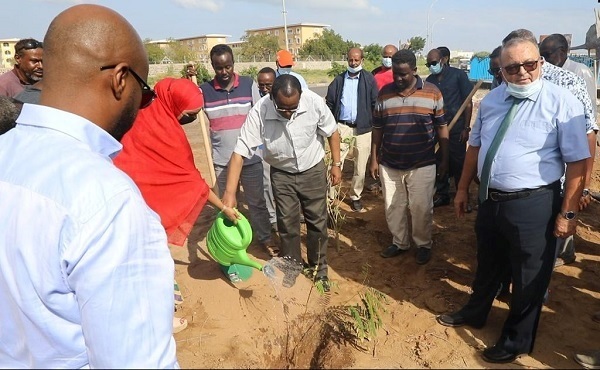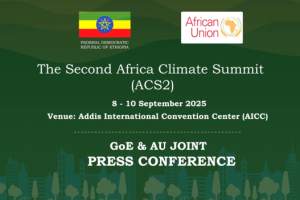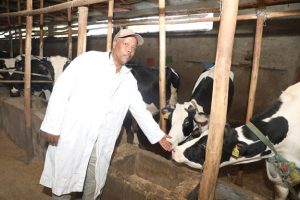
The greater Horn of Africa region has frequently experienced recurrent droughts. These days, it has seriously affected arid and semi-arid parts of Kenya, southern and central Somalia, and Belg-receiving areas of southern and south-eastern of Ethiopia.
Consecutive poor rainfall seasons have driven crop production below-average, rising cereal prices, poor rangeland conditions, reduced livestock production, and drought-related animal deaths in many areas.
Along with three consecutive poor rainfalls, Covid-19 and desert locust invasions, exposed millions to droughtrelated problems across parts of Kenya, Ethiopia, and Somalia.
At the heart of it, all the worsening climate catastrophe, livestock and wildlife are dying of thirst and hunger in large numbers. Hence, the countries are in dire need of humanitarian assistance to reverse the drought that has killed hundreds of thousands of cattle and damaged crops in the region. Reports have shown that 10 million people are affected and delayed rains will further worsen the situation.
Currently 3.4 million people need emergency aid and the figure could rise until April. As stated by some drought management agencies, the drought has seriously affected both the people and livestock.
Hence, the body condition of most livestock in the stated nations is below normal when compared with earlier years and milk production is also lower than average. Farmlands across the region have also been ravaged by a desert locust invasion over the past two years.
The pest remains a threat in Northern Kenya, parts of Ethiopia, and Somalia. Prolonged severe drought conditions have persisted over much of the eastern Horn. Hence, crops and livestock production prospects remain poor, with no effective start of rainfall for planting and crop growth over much of the eastern Horn, along with extremely poor rangeland resources (pasture, browse, and water) in drought-hit pastoral areas. However, efforts have been exerted to curb the consequences of the drought even if much remains to be done.
Considering the positive impact of planting tree seedlings in climate change mitigation, Ethiopia set goals to build a green economy and to follow a climate resilience and green growth path that fosters sustainable development. Besides, the Ethiopian government, following the mid-2018 political reform, has launched the Green Legacy Initiative.
The Green Legacy Initiative, apart from aspiring various environmental protection and conservation works, targeted to see 20 billion transplanted tree seedlings across the nation by the end of 2022. Accordingly, by the year 2019 and 2020, over 23 million and 27 million Ethiopians have participated in the seedling plantation campaign respectively. Even in 2021 alone, Ethiopia has planted about six billion tree seedlings.
Although the initiative is set to achieve 20 billion targets in four years time, 18 billion seedlings have been planted across the nation within three-year alone. Ambassadors, International Organizations, and diplomatic communities residing in the country have also participated in the national campaign.
Addressing the 35the African Union leaders and governments summit, Prime Minister Abiy Ahmed called on neighboring countries to participate in the green legacy initiative adding that it is critical to Ethiopia’s aspirations of building a green and climate-resilient economy. “Our natural environment is our important determinant of human health.
And a healthy ecosystem that supports biodiversity is critical. Like other parts of the world, Ethiopia has also been confronted with climate change and environmental degradation.” Furthermore, climate change effects have contributed to flooding, soil erosion, deforestation, and biodiversity loss adding countering climate change and paving way for green growth has been one of Ethiopia’s key development objectives, the premier explained.
The country has made various efforts to mitigate climate change. Nevertheless, floods, droughts, desert locusts, and other climate-related natural disasters have increased food insecurity for millions of citizens in the region. Hence, Ethiopia is fighting drought via diverse mechanisms. One of the toughest challenges the country faces is dealing with the effects of deforestation.
Therefore, afforestation is taken as one of the most effective ways to mitigate climate change. Beginning 2019, the country has launched a major reforestation initiative under the slogan of “Green Legacy”. Additionally, through this initiative, Ethiopia has declared its readiness to supply tree seedlings to neighboring countries to inspire regional efforts.
Cognizant of the positive impact of the green legacy initiative, Djibouti becomes the first country to apply the green legacy initiative.
It has planted tree seedlings provided by the Government of Ethiopia as part of the Green Legacy Initiative, the Ministry of Foreign Affairs stated. Ethiopia has been conducting a treeplanting campaign aimed at curbing the effects of climate change and deforestation in its Green Legacy Initiative.
Besides, it is important to reduce the recurrent drought that occurs frequently. The government of Ethiopia is also working to expand the initiative to neighboring countries to create a green Africa by supplying seedlings.
Accordingly, Djibouti has planted trees accorded by the government of Ethiopia, to turn the country green and mitigate the effects of climate change.
During the launch of the campaign held in Djibouti recently, the Mayor Fatouma Awaleh Osman said the Green Legacy Initiative would enhance the ongoing efforts to create a climate change resilient environment in the region aside from its positive impact to improve the image of the city.
The Mayor also shows gratitude to thegovernment of Ethiopia for supplying seedlings noting that the two countries are desirous to further continue the implementation of the Green Legacy Initiative.
Dire Dawa City Administration Mayor Kedir Juhar on his part said Djibouti’s participation in the green legacy initiative, which reflects Ethiopia’s desire for a common development goal beyond economic ties, is key to mitigating drought. The two countries have been working together on various issues that strengthen their economic, political, social, and security ties.
Furthermore, collaborating with Dire Dawa University, they have been working to reduce the effect of climate change. So, the green legacy initiative will also be another area of collaboration, he added. Dire Dawa Forest and Climate Change Authority Director Masresha Yimer noted that both Dire Dawa and Djibouti cities share the same climate seasons and effects. Hence, the green legacy initiative will enable them to work closely together on climate change, afforestation, and environmental protection. Ethiopia is ready to accord tree seedlings to neighboring countries as per their needs in rainy seasons.
According, the country is set to provide 91 million seedlings to South Sudan, 356 million to Sudan, 79 million to Eritrea, 9 million to Djibouti, 80 million to Somalia, 30 million to Somaliland, 100 million each to Kenya and Uganda, 19 million to Puntland, and 136 million to Rwanda.
Among these countries, Djibouti is the first country to second the green legacy initiative considering its significance to sustainably solve climate change impacts. As stated by Dr. Abiy Ahmed, “if we can collaborate to spread the message of “Green Legacy” in the continent and implement measures that maximize our food security and self-sufficiency, we will be able to guarantee our citizens the necessities of life without reliance on charity.” Ethiopia is ready to supply tree seedlings to neighboring countries as per their needs during rainy seasons.
Accordingly, the country is set to provide 91 million seedlings to South Sudan, 356 million to Sudan, 79 million to Eritrea, 9 million to Djibouti, 80 million to Somalia, 30 million to Somaliland, 100 million each to Kenya and Uganda, 19 million to Punt land, and 136 million to Rwanda. Among these countries, Djibouti is the first country to duplicate the green legacy initiative. Because green legacy is imperative to sustainably solve the effect of green legacy in the region.
As stated by Dr. Abiy Ahmed, “if we can collaborate to spread the message of “Green Legacy” in the continent and implement measures that maximize our food security and self-sufficiency, we will be able to guarantee our citizens the necessities of life without reliance on charity.”
BY EPHREM ANDARAGCHEW
The Ethiopian Herald 23 February 2022




